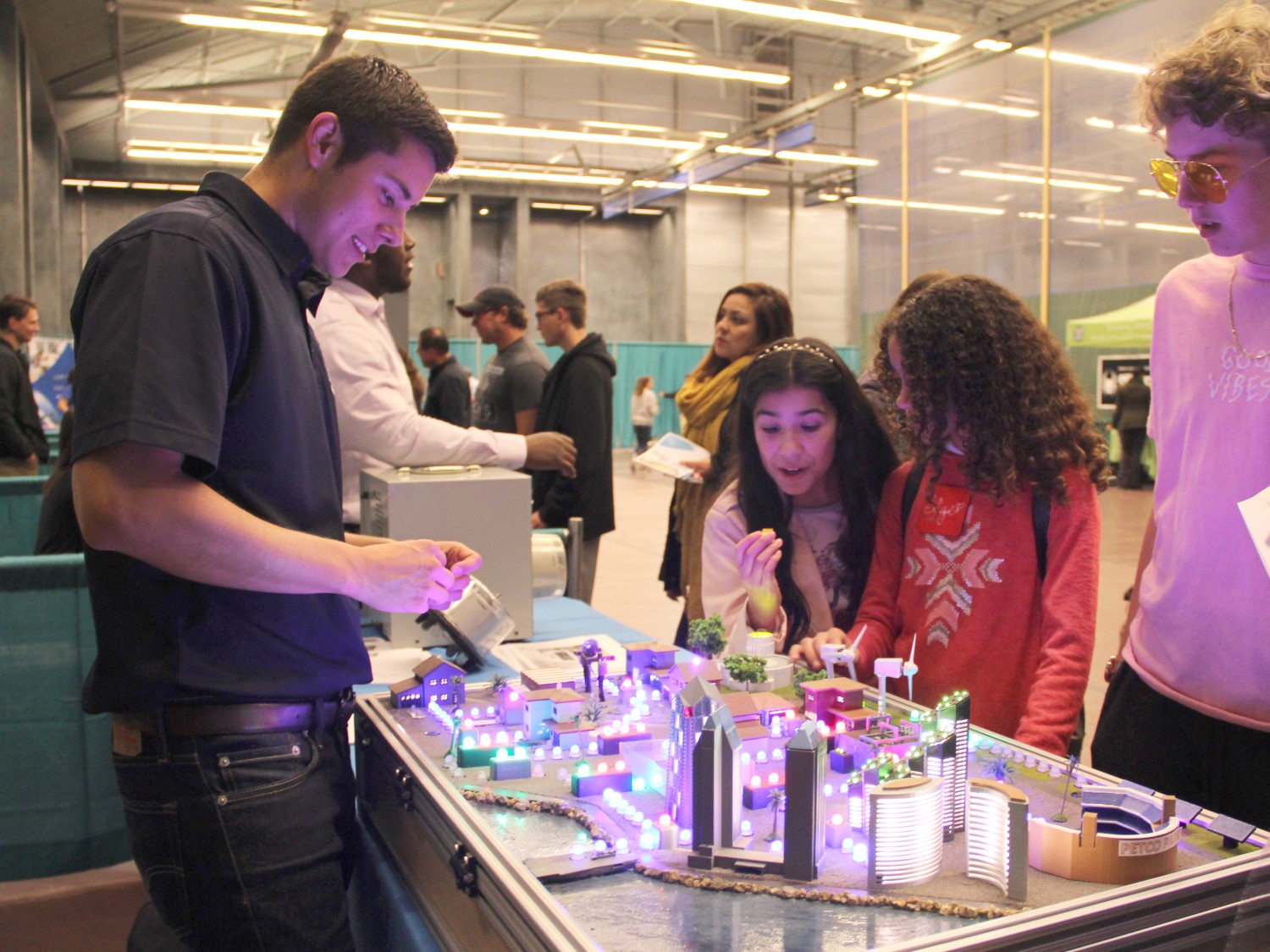
The Fleet Science Center will be closed on Saturday, April 26, for our annual gala fundraiser.

We are living in a time of seemingly unprecedented upheaval finding our community in the grips of overlapping crises. At times such as these we fall back on their strengths, and as a world center for science and engineering, San Diego has access to an incredible tool for meeting our challenges. Science, Technology, Engineering and Math (STEM) speak to each of the colliding storms and their impact on our economic, civic and cultural lives. From development of treatments and vaccines to the data that must inform the decisions that become our public policies, San Diego’s strength in STEM can play a central role in propelling us through crisis.
Our strength however comes to naught if we can’t draw on it in times of need. And the reality is that the vast majority of our community finds itself disconnected from science. We live in a community where STEM is held separate from the daily lives. Where science-based thinking and data-based decisions are left to others rather than regularly employed. Where while we may all benefit from the outcomes of science, we are separated from the practice of STEM and its most powerful tools. As an undergraduate engineering major once said, “science is super impactful and it's really important for scientists to know. But for the rest of us, it doesn’t really matter.” The crisis which should highlight our great strength has laid bare our greatest weakness: the power or science is not accessible to or seen as meaningful by the majority of our community.
To fully realize the promise of STEM in meeting challenges and advancing community goals we need to pursue a new democratization of science. To shift the power of science from the lab, from the university, from the R&D facility, to the community and ensure that STEM is accessible for everyone to use to shape their economic, civic and cultural lives.
If we are to make San Diego’s STEM resources available not just to STEM professional but to all San Diegans we must:
Democratizing STEM promises a San Diego where everyone is connected to the power of science. Acting now, in this unique moment, allows us to use the economic and educational upheaval to address the staggering inequality of outcomes and opportunity, to use the civic turmoil to reshape our engagement in issues of common interest and to use the cultural reckoning to unmake the systems which hamper our society from reaching its greatest potential.
We are living through a once in a century disruption, but with great disruption comes great opportunity. We are faced with a powerful moment to stop, reassess and remake our San Diego communities for the better. While no one of us can drive this kind of community-wide change alone, each of us has an obligation to ourselves and future generations to do our part to not let this moment slip away.